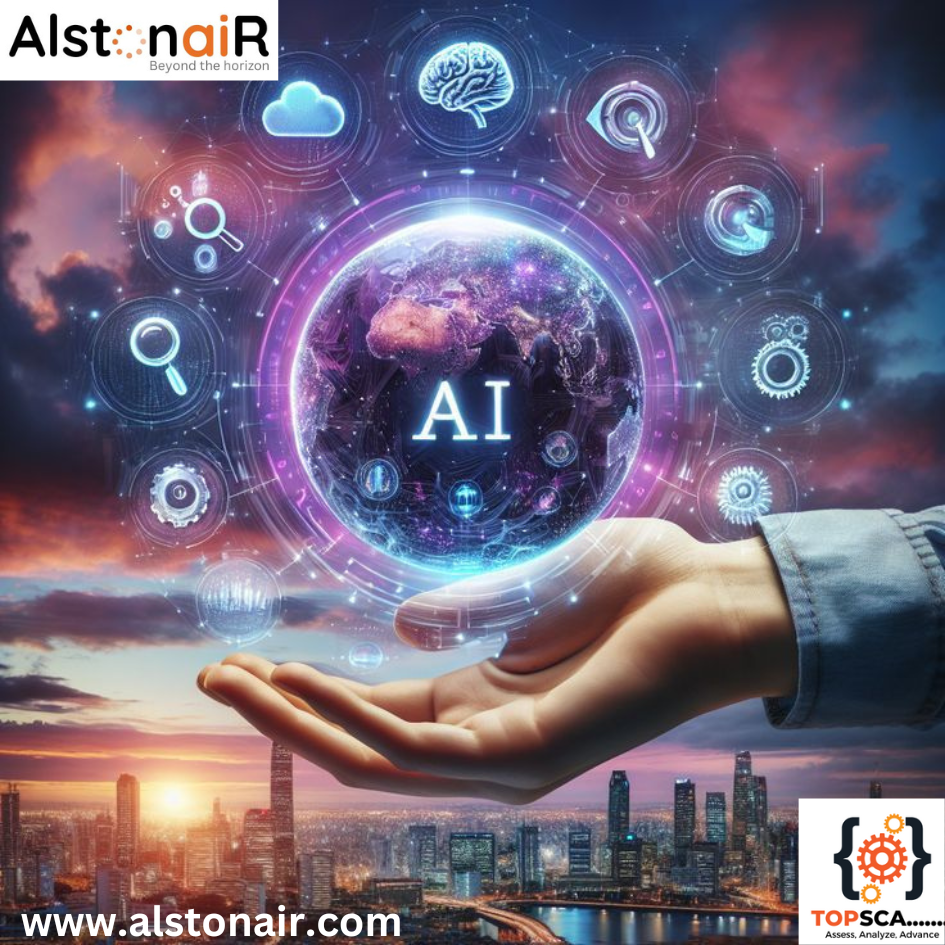
Role of AI in TopSca
AI is the backbone of TopSca's ability to deliver intelligent, real-time skill assessments and actionable insights. AI technologies are used across various components of the platform to enhance the evaluation process, optimize candidate assessment workflows, and provide deep insights into candidate potential.
Key Areas of AI Integration in TopSca:
Automated Skill Assessments:
- AI-powered algorithms analyze candidates' responses and performance across different skill categories (technical, cognitive, behavioral, and psychometric, business, functional).
- AI creates dynamic assessments based on job roles and requirements, adjusting questions and tasks in real-time to evaluate the most relevant skills for a particular position.
- AI-driven adaptive testing allows for personalized difficulty adjustments based on a candidate’s performance, providing a more accurate measurement of their skill levels.
Natural Language Processing (NLP):
- NLP helps process and understand text-based responses from candidates. Whether it's answering technical questions, providing written explanations, or completing situational judgment tests, NLP enables TopSca to evaluate the context and intent behind candidates' responses.
- Sentiment analysis within NLP evaluates the emotional tone of written responses, providing insights into a candidate’s communication style and emotional intelligence.
Behavioral and Personality Analysis:
- AI evaluates behavioral traits, psychometric attributes, and personality insights based on candidates' responses during assessments.
- AI algorithms analyze patterns in data to predict a candidate’s behavior in real-world scenarios, such as decision-making, stress tolerance, and teamwork.
- Machine learning models identify whether a candidate's personality aligns with the company culture and job requirements, leading to better cultural fit and higher long-term success in the role.
Predictive Analytics and Data-Driven Decision-Making:
- AI aggregates the data from various assessments to provide predictive insights about candidates' future performance in the workplace.
- By analyzing historical data from past hires and performance outcomes, AI can make recommendations based on patterns that suggest candidates are more likely to succeed in specific roles or environments.
- AI helps hiring managers and recruiters assess a candidate’s potential in terms of skill growth, learning aptitude, and adaptability, supporting decisions beyond just technical proficiency.
Real-Time Feedback and Reporting:
- AI generates real-time feedback during assessments, offering candidates immediate insights into their strengths and areas for improvement.
- AI-driven reports offer detailed, data-backed insights to hiring managers, including scoring metrics, skill proficiency analysis, behavioral predictions, and improvement recommendations.
- These reports are automatically tailored to specific job roles, ensuring the feedback is highly relevant for the recruitment process.
Smart Matching and Shortlisting:
- AI matches candidate profiles with job requirements using advanced matching algorithms that analyze both skills and personality traits.
- By evaluating past hiring data, AI can help businesses identify patterns and predict which types of candidates are most likely to succeed in a specific role, streamlining the shortlisting process.
